Shifting Alliances in the Accreditation of Higher Education: On the ...
Shifting Alliances in the Accreditation of Higher Education: On the ...
Shifting Alliances in the Accreditation of Higher Education: On the ...
You also want an ePaper? Increase the reach of your titles
YUMPU automatically turns print PDFs into web optimized ePapers that Google loves.
with<strong>in</strong> <strong>the</strong> <strong>in</strong>dustry unless it is somehow sanctioned, ei<strong>the</strong>r <strong>of</strong>ficially or implicitly, by <strong>the</strong><br />
government. Therefore, <strong>in</strong> most cases it is necessary for <strong>the</strong> self-regulatory body to<br />
somehow persuade o<strong>the</strong>r firms operat<strong>in</strong>g with<strong>in</strong> that sector <strong>of</strong> <strong>the</strong> body‘s legitimacy.<br />
Suchmann def<strong>in</strong>es legitimacy as ―a generalized perception or assumption that <strong>the</strong> actions<br />
<strong>of</strong> an entity are desirable, proper, or appropriate with<strong>in</strong> some socially constructed system<br />
<strong>of</strong> norms, values, beliefs and def<strong>in</strong>itions.‖ 29 Without <strong>the</strong> perception <strong>of</strong> legitimacy,<br />
attempts at <strong>in</strong>dustry self-regulation are unlikely to succeed unless <strong>the</strong>y are somehow<br />
clearly sanctioned by <strong>the</strong> government. In most cases, however, <strong>the</strong> self-regulatory body<br />
must achieve a degree <strong>of</strong> legitimacy with<strong>in</strong> its own sector before it can be sanctioned by<br />
<strong>the</strong> government.<br />
Weimer lists <strong>the</strong> follow<strong>in</strong>g ways that private standards, which are a common form<br />
<strong>of</strong> <strong>in</strong>dustry self-regulation, are given legitimacy: adoption <strong>of</strong> standards by public<br />
regulators, <strong>in</strong>corporation <strong>of</strong> standards <strong>in</strong>to private contracts, use <strong>of</strong> standards as a defense<br />
aga<strong>in</strong>st tort, and use <strong>of</strong> standards <strong>in</strong> accreditation systems that are required for<br />
participation <strong>in</strong> government programs (e.g. Medicare and Medicaid). 30 Although private<br />
standards <strong>the</strong>mselves are not legally b<strong>in</strong>d<strong>in</strong>g, <strong>the</strong>y may come to be used as though <strong>the</strong>y<br />
were and, <strong>in</strong> some cases, may actually become legally enforceable. Weimer adds that<br />
―[t]he process by which private standards ga<strong>in</strong> regulatory force generally <strong>in</strong>volves <strong>the</strong><br />
29 The Suchmann (1995) def<strong>in</strong>ition was taken from Cashore (2002) by Vallejo and Hauselmann. Vallejo<br />
and Hauselmann do not provide <strong>the</strong> <strong>in</strong>itial Suchmann citation and so I am unable to provide it here. Source:<br />
Cashore B., ―Legitimacy and Privatisation <strong>of</strong> Environmental Governance: How Non-State Market-Driven<br />
(NSMD) Governance Systems Ga<strong>in</strong> Rule-Mak<strong>in</strong>g Authority,‖ Governance: an International Journal <strong>of</strong><br />
Policy , Adm<strong>in</strong>istration and Institutions 15, no. 4, (October 2002): 503-529. Source: Nancy Vallejo and<br />
Pierre Hauselmann, ―Multi-stakeholder Governance: A Brief Guide.‖ International Institute for Susta<strong>in</strong>able<br />
Development. http://www.idsd.org (May 2004), 3.<br />
30 David L. Weimer, ―The Puzzle <strong>of</strong> Private Rulemak<strong>in</strong>g: Expertise, Flexibility, and Blame Avoidance <strong>in</strong><br />
U.S. Regulation.‖ Public Adm<strong>in</strong>istration Review 66, no. 4 (July/August 2006): 575.<br />
23


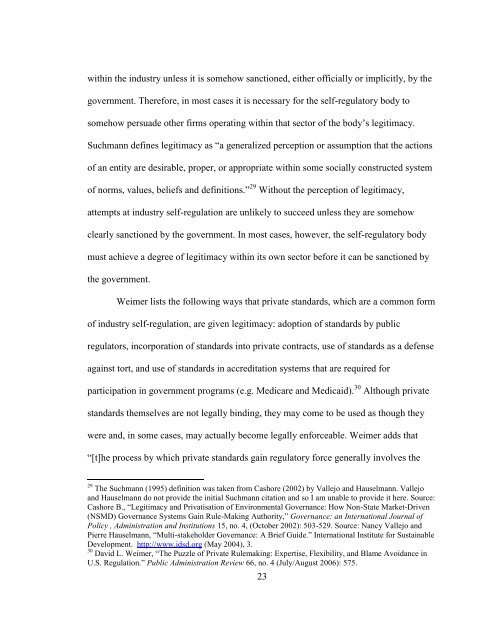
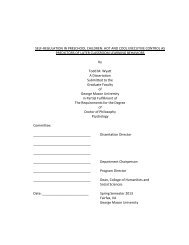
![[Sample B: Approval/Signature Sheet] - George Mason University](https://img.yumpu.com/21978828/1/190x245/sample-b-approval-signature-sheet-george-mason-university.jpg?quality=85)
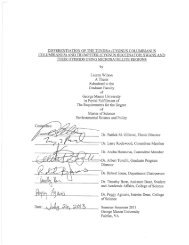
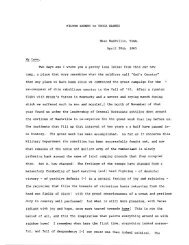
![[Sample B: Approval/Signature Sheet] - George Mason University](https://img.yumpu.com/18694905/1/190x245/sample-b-approval-signature-sheet-george-mason-university.jpg?quality=85)
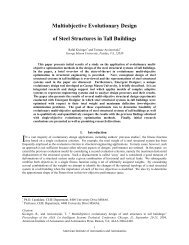
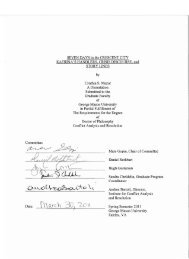
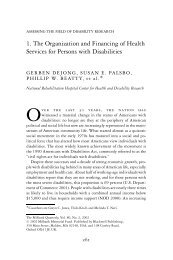
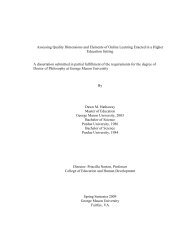
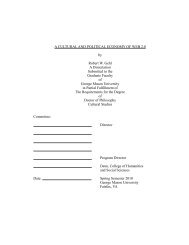
![[Sample B: Approval/Signature Sheet] - George Mason University](https://img.yumpu.com/18694552/1/189x260/sample-b-approval-signature-sheet-george-mason-university.jpg?quality=85)
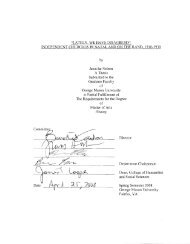
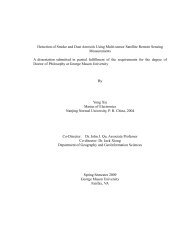
![[Sample B: Approval/Signature Sheet] - George Mason University](https://img.yumpu.com/18694474/1/190x245/sample-b-approval-signature-sheet-george-mason-university.jpg?quality=85)